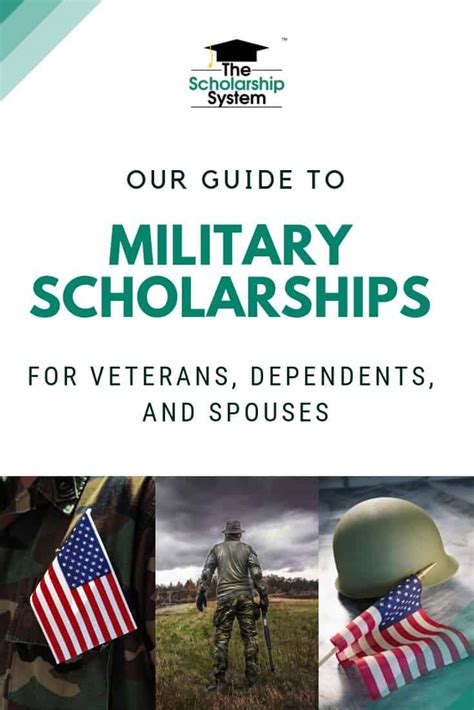Unlocking Your Future: A Comprehensive Guide to Scholarships

`markdown
Preview: Dreaming of higher education but worried about the cost? Scholarships can be your key to unlocking a brighter future! This guide provides a comprehensive overview of scholarships, helping you understand the different types, where to find them, and how to craft a winning application.
Understanding Scholarships: Your Pathway to Higher Education
Scholarships are a fantastic form of financial aid that doesn't require repayment. Unlike loans, they're essentially free money awarded based on various criteria. Understanding the nuances of scholarships is crucial for maximizing your chances of securing funding.
Types of Scholarships
There's a vast array of scholarships available, each with its own eligibility requirements. Here are some common categories:
- Merit-Based Scholarships: Awarded based on academic achievement, athletic ability, artistic talent, or other exceptional skills. A strong GPA and impressive extracurricular activities are often key.
- Need-Based Scholarships: Granted based on financial need. These scholarships aim to make education accessible to students from lower-income backgrounds. FAFSA (Free Application for Federal Student Aid) is often required.
- Demographic Scholarships: Specifically for students belonging to certain demographic groups, such as minorities, women in STEM, or LGBTQ+ individuals.
- Field of Study Scholarships: Designated for students pursuing specific academic disciplines, like engineering, nursing, or journalism.
- Location-Based Scholarships: Offered to students residing in or attending schools within a particular geographic area.
- Organization-Based Scholarships: Provided by companies, non-profits, and other organizations to support education in specific areas.
- University Websites: Directly check the websites of the colleges and universities you're interested in. They often have dedicated scholarship pages listing institutional awards.
- Online Scholarship Databases: Websites like Scholarship.com, Fastweb, and Niche offer vast databases of scholarships based on various criteria.
- High School Guidance Counselors: Your high school counselor can provide personalized guidance and information on local and national scholarships.
- Professional Organizations: If you're pursuing a specific field, check with professional organizations related to that field. They often offer scholarships to aspiring professionals.
- Local Community Organizations: Local businesses, civic groups, and community foundations may offer scholarships to students in the area.
- Emphasis on Diversity and Inclusion: Many scholarships are increasingly focusing on supporting students from underrepresented groups.
- Skills-Based Awards: Some scholarships are now recognizing and rewarding specific skills and talents, even outside of traditional academic achievements.
- Micro-Scholarships: Platforms like RaiseMe allow students to earn scholarships for accomplishments throughout high school.
- Meet the Eligibility Requirements: Carefully review the eligibility criteria for each scholarship and ensure you meet them before applying.
- Write a Compelling Essay: The essay is your opportunity to showcase your personality, passions, and goals. Answer the prompt thoughtfully and honestly, demonstrating why you deserve the scholarship.
- Gather Strong Letters of Recommendation: Request letters of recommendation from teachers, mentors, or employers who know you well and can speak to your skills and character.
- Proofread Carefully: Ensure your application is free of errors in grammar, spelling, and punctuation.
- Submit on Time: Pay close attention to deadlines and submit your application well in advance to avoid any last-minute technical issues.
- Start Early: Don't wait until the last minute to begin your scholarship search and application process.
- Apply Widely: The more scholarships you apply for, the greater your chances of receiving funding.
- Tailor Your Application: Customize your application to each specific scholarship, highlighting the aspects of your background and experience that align with the award's criteria.
- Ignoring Eligibility Requirements: Applying for scholarships you're not eligible for is a waste of time.
- Submitting Generic Essays: Generic essays don't stand out. Tailor your essay to each scholarship prompt.
- Missing Deadlines: Missing the deadline is an automatic disqualification.
- Neglecting Proofreading: Errors in your application reflect poorly on your attention to detail.
Finding the Right Scholarships for You
Knowing where to look is half the battle. Here are some valuable resources for finding scholarships:
Top Trends in Scholarships
The scholarship landscape is constantly evolving. Here are some current trends to keep in mind:
Crafting a Winning Scholarship Application
A strong application is essential for standing out from the competition. Here's what you need to do:
Key Details for Scholarship Success
Common Mistakes to Avoid
FAQs About Scholarships
Q: What's the difference between a scholarship and a grant?
A: Both scholarships and grants are forms of financial aid that don't need to be repaid. Generally, scholarships are awarded based on merit or specific skills, while grants are typically need-based.
Q: How do I find scholarships specific to my major?
A: Use keywords related to your major when searching online scholarship databases. Also, check with professional organizations and associations in your field of study.
Q: Can international students apply for scholarships?
A: Yes! Many scholarships are available specifically for international students. Search online databases and check with the universities you're interested in.
Q: Are there scholarships for graduate students?
A: Absolutely. Numerous scholarships and fellowships are available to graduate students. University websites, professional organizations, and online databases are great resources.
Q: What if I don't have a perfect GPA?
A: While a strong GPA is helpful, many scholarships consider other factors like extracurricular activities, leadership roles, and community involvement. Focus on highlighting your strengths and passions in your application.
By understanding the different types of scholarships, knowing where to find them, and crafting compelling applications, you can significantly increase your chances of securing the funding you need to pursue your educational goals. Good luck!
`



![Walmart Stock: Is It a Buy, Sell, or Hold in [Current Year]?](https://pandawa.biz/walmart-stock-is-it-a-buy-sell-or-hold-in-current-year.webp)

